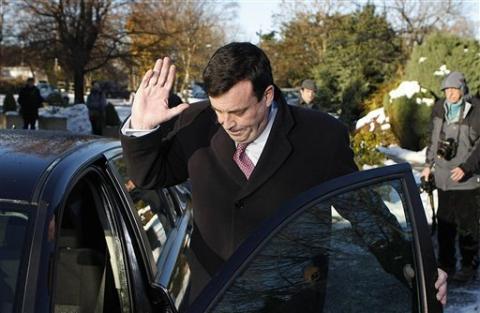Power's pomp seduces ministers to play the game

There was a throwaway line in Brian Lenihan's budget speech two weeks ago about ministerial transport. It was to the effect that changes to ministerial transport arrangements would be specified in the budget annex, writes Vincent Browne.
The budget annex revealed there would be no changes to ministerial transport, apart from an undertaking that ministerial cars would henceforth be of two-litre capacity, and the transport arrangements for former taoisigh were being curtailed marginally.
That's it. Nothing about undoing the folly of ministerial cars and drivers which, along with salary and expenses, cost this society around €500,000 per minister per annum. The ministers who ordained that the jobseekers' allowance would be cut also opted to keep their own privileged perk.
Ministerial cars are more than mere conveniences for ministers, although they certainly are that for ministers and their families. They are also instruments of prestige, authority and status, very much part of the privileged paraphernalia of being a minister, very much part of creating a culture of status and importance which distances ministerial office-holders from those they purport to represent.
This cultivates the arrogance and impudence of office so spectacularly flaunted by so many ministers during those heady days of wine, roses, planning permissions and dig-outs.
It is not so much the cost of the ministerial cars (€200,000 per car, including two full-time Garda drivers, for every minister) that is the issue – although that is outrageously extravagant – it is the ministerial insolence and self-importance it breeds, an insolence and self-importance that do great damage to the public welfare.
And it is not only ministerial cars that breed this insolence and self-importance, there is also the title thing – being called "minister" by civil servants, RTE interviewers and others prone to obsequiousness; the door-opening, the case-carrying, the diary-keeping.
It elevates them beyond the ordinary, brings them into the ambience of power, wealth and prestige – and, boy, do they get to like it.
Ministerial office brings that social cachet of mixing with the big boys, the titans of the financial and business world, the leading lights in the important professions, the "responsible" classes.
What chance is there that co-opted ministers would do anything against the interests of that elite?
Have you noticed the circus enacted before and after meetings of EU Ministers of Finance (Ecofin), the arrival of their eminences in limousines, flunkies opening their car doors for them, the parade along the red carpet, the wave of imperious salutation to the media rabble. The television pictures of the great ones meeting and greeting each other inside the Ecofin chamber, the camaraderie, the back-slapping, all on first name terms.
What chance is there that, in such ambience, our Minister for Finance would tell his fellow eminences: "Sorry lads, that the game was up for Ireland. We simply cannot afford the bank bailout any longer. From here on in, it's your problem." Unthinkable! Unthinkable, because of that ambience, that status stuff, the limousines, red carpets, backslapping, deference, and obsequiousness. They create a mindset that disposes all decisions to the interests of the elites.
Yes, it is slightly amusing and the occasional puncturing of the self-importance can be entertaining. But there are more serious matters here. There is at least a possibility that around the end of next March or June, when the quarterly reports go to the EU and IMF from the Department of Finance, that there will be an acknowledgement that the banking collapse was even worse than acknowledged, and that the money required to rescue them is not the €50 billion talked about a month or so ago, but €80 billion to €90 billion.
There is also a likelihood that tax revenues will not be a good as projected, because economic growth has been slower than anticipated, meaning that the fiscal deficit projected is worse than projected. Certainly, the credit ratings agencies think something like this is going to happen.
There are only two possible responses on the part of this country to such a scenario: either commit ourselves to even further austerity measures and deeper deflation or say sorry, we can't pay. It was the EU that encouraged us to undertake the bank rescue in September 2008.
That has now proved beyond our capacity, so either Europe moves in and takes over this burden or the banks must be let go, however disastrous the consequences may be to German, French, British and other banks that gave our banks facilities.
You might think that a Labour Minister for Finance – be it Eamon Gilmore, Pat Rabbitte or Joan Burton – might have the bottle to say "Ireland can't pay". But after a few weeks in the ministerial cars, with the door-opening, the case-carrying, the diary-keeping, red carpets, and backslapping, they will have become "responsible", however grievous that is to the welfare of so many.
